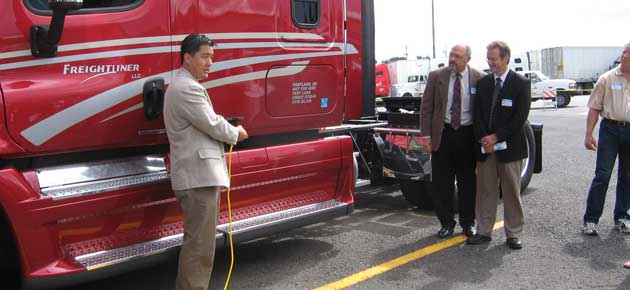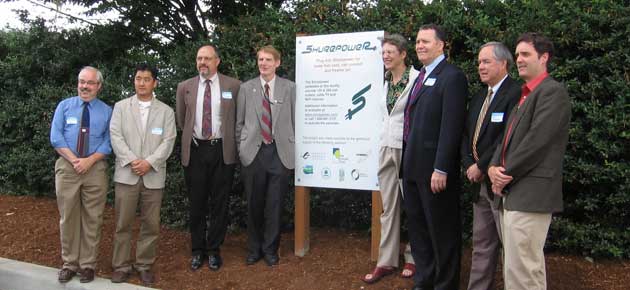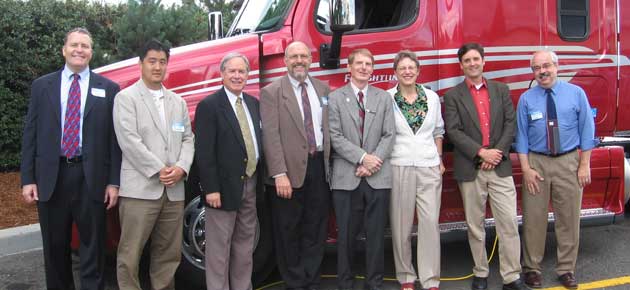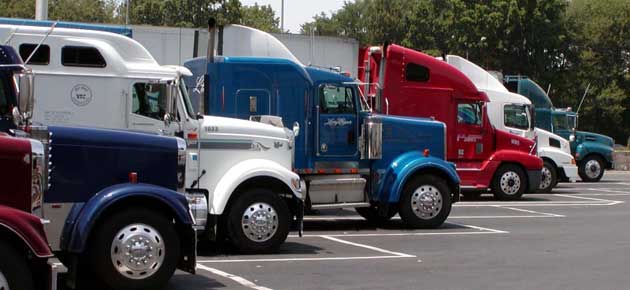 In 2003, Governor Theodore Kulongoski launched, with the Governors of California and Washington, the West Coast Global Warming Initiative to address the issue of climate change and outline strategies and projects to curb greenhouse emissions. Reducing long duration idling at truck stops was identified as one effective measure to reduce carbon dioxide emissions. The Reduced Idling at Truck Stops project was designated an Oregon Solutions project by Governor Kulongoski in April 2004 to ensure successful implementation in Oregon.
In 2003, Governor Theodore Kulongoski launched, with the Governors of California and Washington, the West Coast Global Warming Initiative to address the issue of climate change and outline strategies and projects to curb greenhouse emissions. Reducing long duration idling at truck stops was identified as one effective measure to reduce carbon dioxide emissions. The Reduced Idling at Truck Stops project was designated an Oregon Solutions project by Governor Kulongoski in April 2004 to ensure successful implementation in Oregon.
Continuous idling of large diesel truck engines for cab space conditioning and engine warming is costly to truck owners and operators, both in terms of fuel use and engine wear. Unnecessary idling is also wasteful of the nation’s energy supply and damaging to the environment. Nationally, fuel consumed by idling represents about 1 percent of all imported petroleum. This Oregon Solutions team intended to be a means to address the myriad challenges related to reducing idling time by bringing together the private sector trucker and truck stop operators with the public sector groups who wish to help transform the market by sponsoring, offering incentives, or otherwise encouraging the installation and use of truck stop electrification (TSE) as an alternative to engine idling.
This project promoted fuel savings and reductions in air pollution and carbon dioxide emissions by supporting the development of diesel truck idling reduction infrastructure. The project team worked to reduce diesel engine idling statewide by initially focusing collaborative efforts with truck stops along the I-5 corridor.




